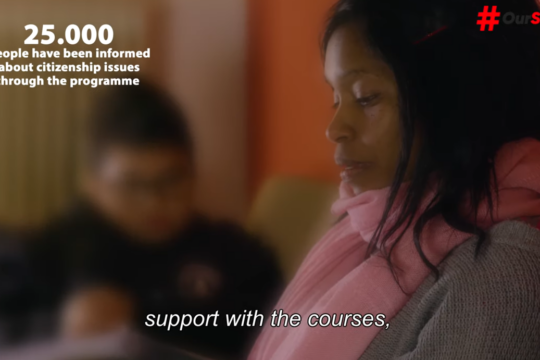Citizenship in Practice

The reform of the Greek Citizenship Code began in 2010 (L.3838). In 2013 the Council of State ruled certain articles on the second generation citizenship as unconstitutional. The reform was completed in 2015 (L. 4332) re-establishing the citizenship right. However, the administrative procedures in practice create obstacles while exercising it thus infringing other human rights.
The project addresses – for the first time in Greece – the need to assess the administrative procedure of granting citizenship thus contributing to equal access and enjoyment of it.
The aim of the project is to improve the administrative practice related to the acquisition of citizenship: it will identify the administrative inefficiencies, put forward proposals for its simplification for the benefit of both the applicants and the administration – which will arise from the monitoring of the implementation of national legislation as well as the experience of other European countries-, enhance the skills of public officials and inform about the safeguarding of the right to citizenship.
The activities are the following:
- Informative event
- Recording and highlighting issues in the administrative procedure for granting citizenship
- Recording good public administration practices of EU member states
- Online platform
- Guide on the process of determining the essential conditions for acquiring Greek citizenship
- Skills development workshops
- Booklet: Myths and Truths about Citizenship
- Report: Greek citizenship in practice
- Dissemination event
The project is addressed mainly to the Greek public administration. The submission of proposals for improving practices will also benefit the applicants for citizenship. The 2 collaborating organizations are the most active within Greek civil society in matters of citizenship. The partnership ensures the complementarity of skills and the linkage of field knowledge (G2RED) and scientific evidence (HLHR) for the successful implementation of the project.
